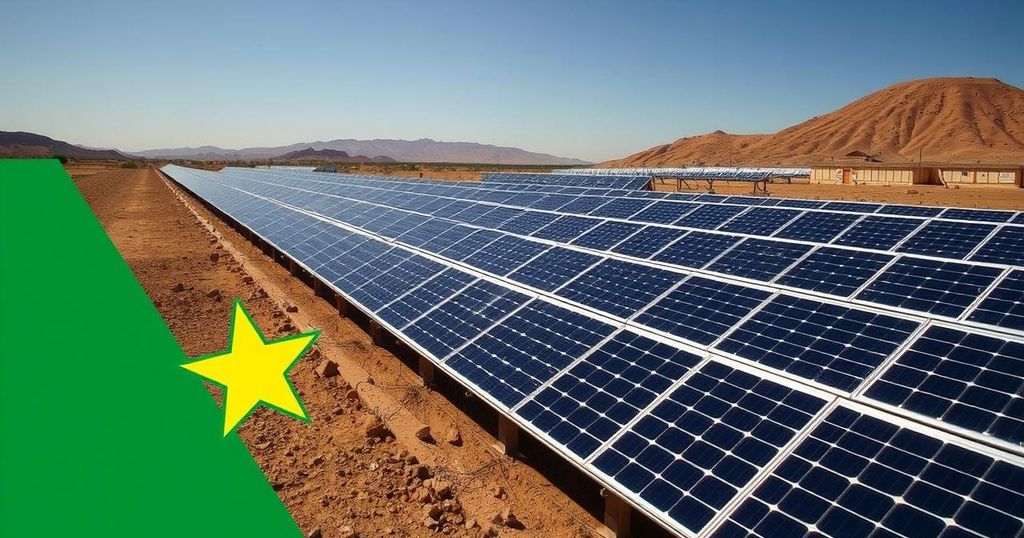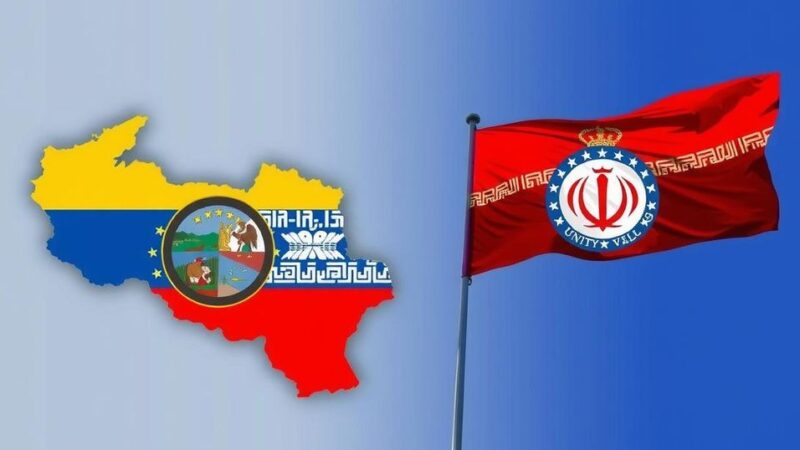Egypt has launched a solar power project in Djibouti to provide alternative energy sources and decrease reliance on Ethiopia. The agreement includes an initial power capacity of 276.5 kilowatts and training for Djiboutian technicians. The project reflects Egypt’s strategy to strengthen ties in the Horn of Africa amid increasing electricity demands and focuses on sustainable energy solutions.
Egypt has strengthened its relationship with Djibouti by initiating a solar power project aimed at providing the Horn of Africa nation with alternative energy sources, thereby reducing its dependence on Ethiopia, with which Egypt has had a longstanding rivalry. This project entails the establishment of a solar energy farm in the deserts of Djibouti, with an initial capacity of 276.5 kilowatts and plans for future expansion up to 300 kilowatts. The agreement was signed virtually between Egypt’s Energy Minister, Mahmoud Essmat, and Djibouti’s Minister of Energy, Yonis Ali Gued, who primarily discussed their nations’ economic aspirations while sidestepping the potential political ramifications of their collaboration. The contract encompasses the supply and installation of solar panels near the village of Omar Jaggaa. Alexis Mohamed, an advisor to Djibouti’s President Ismail Omar Guelleh, emphasized, “The signing on Tuesday of an agreement on the construction of a solar power plant with a capacity of 276.5 kilowatts between Djibouti and Egypt not only marks a step towards a mutually beneficial collaboration between our two countries, but also reaffirms the demands of President Ismail Omar Guelleh, who continues to make the energy issue a national priority in favour of our economic and social development.” While the two nations framed the agreement as a bilateral economic initiative, it carries significant implications for the broader Horn of Africa region, which is marked by tensions between Ethiopia and Egypt, particularly regarding Nile water rights and security dynamics in Somalia. Djibouti has traditionally maintained strong trade links with Ethiopia, relying on it for a substantial portion of its electricity supply; approximately 95 percent of Ethiopia’s imports transit through Djibouti’s ports. Moreover, as Djibouti’s electricity needs rise—driven by increased maritime trade—there is a notable push for renewable energy investments. A recent project funded by the African Development Bank has established a 283km power transmission line from Dire Dawa in Ethiopia to Djibouti at a cost of $138 million. Djibouti’s electricity consumption from Ethiopia has averaged about 532GWh per year, highlighting its significant reliance on its neighbor’s power supply, corresponding to earnings of approximately $30 million annually for Ethiopia. As Djibouti aims to bolster its energy infrastructure, projections suggest that its electricity demand could soar to about 1GWh daily by the year 2030. Currently, approximately 65 percent of Djibouti’s populace has access to electricity, a number set to rise to 72 percent with the addition of the new transmission line, and is anticipated to increase further with the operationalization of the solar farm.
The relationship between Egypt and Ethiopia has been fraught with tension, particularly concerning the management and sharing of Nile River water. Djibouti, strategically located in the Horn of Africa, has been drawn into this geopolitical dynamic as Egypt seeks to reduce Ethiopian influence in the region. The initiation of a solar project in Djibouti represents Egypt’s strategy to weave stronger alliances with its neighbors while addressing domestic energy needs with sustainable solutions, highlighting a broader trend toward renewable energy investment in East Africa.
In summary, Egypt’s solar power initiative in Djibouti not only aims to provide a sustainable energy source for Djibouti but also serves to reduce Djibouti’s reliance on Ethiopia amidst regional tensions. This partnership underlines the growing importance of renewable energy in the Horn of Africa, with potential implications for national development and regional stability as nations seek to diversify their energy portfolios and strengthen bilateral ties.
Original Source: www.theeastafrican.co.ke






